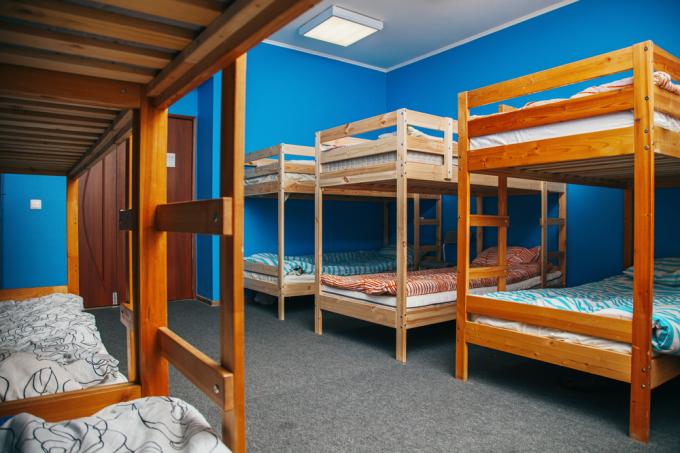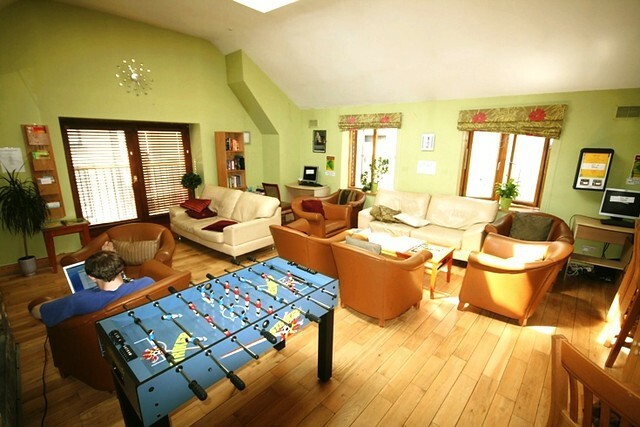Hostel, translated into Portuguese as hostel, is a space for economic accommodation, with shared rooms, bathrooms, kitchen and other common areas.
The main objective of a hostel is to provide an exchange of experiences among its guests, offering a cultural exchange.
The spaces are less private, but cheaper and with a more informal atmosphere.
How does a hostel work?
The primary idea behind the creation of the hostel was to offer a type of affordable accommodation for the so-called backpackers, people who travel alone around the world and seek to spend little, either with accommodation or food.
Therefore, the hostels were created with the intention of sharing rooms, bathrooms and other common areas among travelers, charging much lower accommodation than other types of accommodations.
But this concept has been changing over time and many hostels have adapted to some new needs of their guests, such as the option of single rooms, for example.
With these new features, each hostel has provided different experiences, depending on its purpose and style. But there is a basic and standard operation for all models.
The rooms
Hostels offer multiple beds in a single dorm. These rooms are usually arranged with bunk beds and can have up to 30 beds. In this case, the more beds, the lower the cost of accommodation.
In most hostels there is also the option of mixed rooms, with men and women, or just for the male or female public. And today almost all accommodation offers private rooms, whether for couples or families with children.

Example of shared room in a hostel.
Bathroom, kitchen and common areas
A crucial point that differentiates hostels from other accommodations is the sharing of the kitchen. In most cases, this type of accommodation does not have a restaurant, so they build kitchens that offer all appliances for guests to have the possibility to cook their own meals.

Example of shared kitchen at the hostel.
Bathrooms are generally large, with multiple showers and separate toilet stalls. Hostels tend to offer one or two bathrooms on each floor.
Another great feature are the living areas. Many have TV rooms, games, gardens or makeshift spaces for guests to meet and socialize.

Example of a living room in a hostel.
security and privacy
One of the biggest concerns for people when choosing this type of accommodation is security. Today it is possible to say that most hostels offer a locker, either inside or outside the room, where guests can store their belongings and keep them safe with a padlock.
However, if the guest wants to have the experience that a hostel provides, but values greater privacy and security, the ideal is to choose those that offer the option of private rooms. In this case the value can increase, but the common areas work the same way.
Difference between hostel and hotel
The hotel is generally a place with private accommodations and full service breakfast, private rooms, ranging from simple to luxurious, striving for comfort and privacy.
The structure of the hotel is generally more glamorous, more private, with extra services such as the gym, restaurants, swimming pool and leisure areas that can greatly influence the price.
Meanwhile, the hostel is a space aimed at people who want to have a more community experience, sharing not only the spaces, but also experiences with other travelers.
See also the meaning of:
- Check in;
- Check-out;
- Room service.



